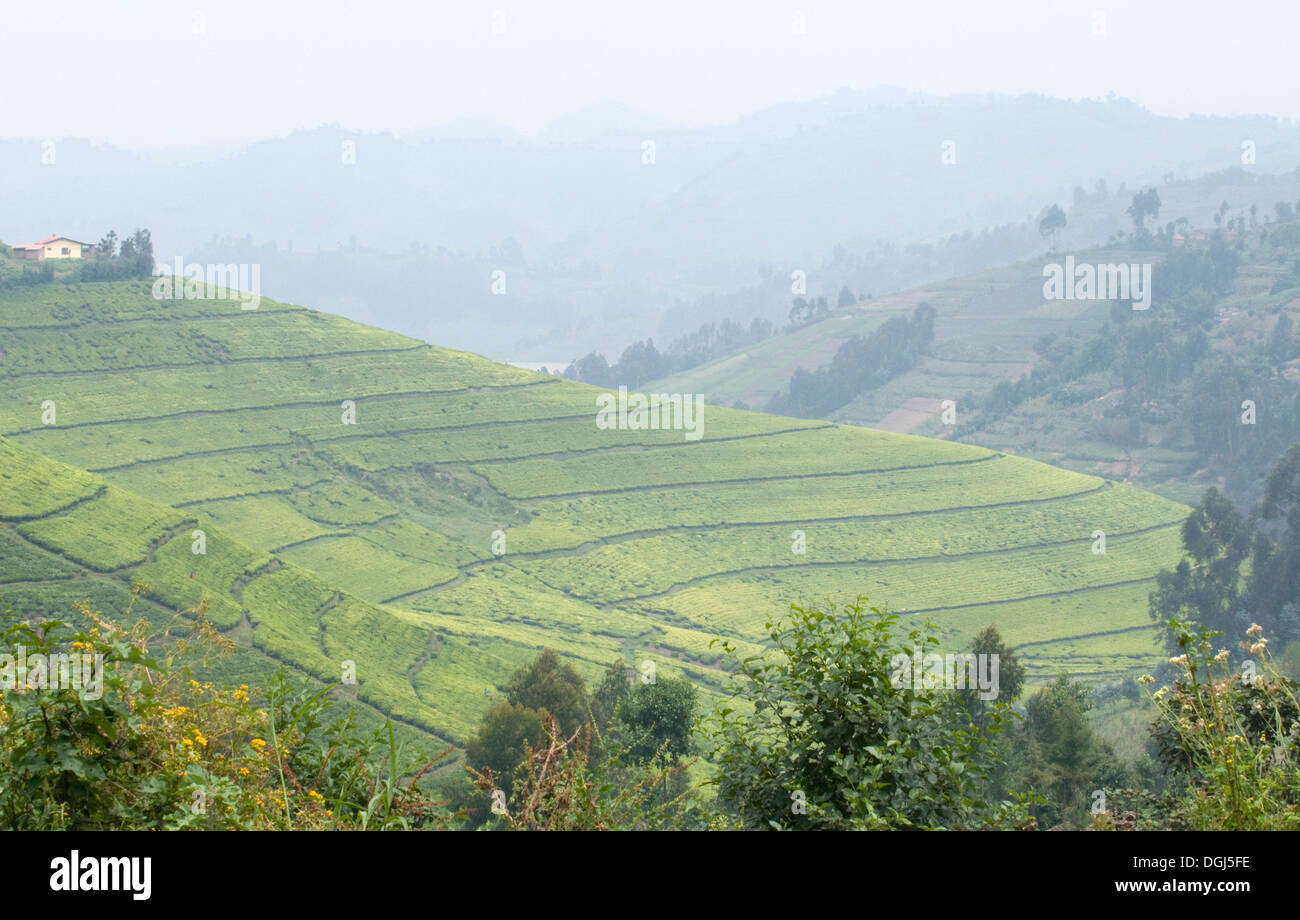Tea plantations in Central Rwanda between Kigali and Ruhengiri near the Virunga Mountains The land of 1000 Hills

Image details
Contributor:
Roland Pargeter / Alamy Stock PhotoImage ID:
DGJ5FEFile size:
33.6 MB (1.4 MB Compressed download)Releases:
Model - no | Property - noDo I need a release?Dimensions:
4287 x 2739 px | 36.3 x 23.2 cm | 14.3 x 9.1 inches | 300dpiDate taken:
23 January 2012Location:
Tea plantation in Agricultural Rwanda Central AfricaMore information:
Tea plantations in Central Rwanda between Kigali and Ruhengiri near the Virunga Mountains The land of 1000 Hills. Rwanda (/ruːˈɑːndə/ or /ruːˈændə/), officially the Republic of Rwanda (Kinyarwanda: Repubulika y'u Rwanda; French: République du Rwanda), is a sovereign state in central and east Africa. Located a few degrees south of the Equator, Rwanda is bordered by Uganda, Tanzania, Burundi, and the Democratic Republic of the Congo. All of Rwanda is at high elevation, with a geography dominated by mountains in the west, savanna in the east, and numerous lakes throughout the country. The climate is temperate to subtropical, with two rainy seasons and two dry seasons every year. The population is young and predominantly rural, with a density among the highest in Africa. Rwandans form three groups: the Hutu, Tutsi, and Twa. The Twa are a forest-dwelling pygmy people who descend from Rwanda's earliest inhabitants, but scholars disagree on the origins of and differences between the Hutu and Tutsi; some believe that they are derived from former social castes, while others view them as being races or tribes. Christianity is the largest religion in the country, and the principal language is Kinyarwanda, which is spoken by most Rwandans. Rwanda has a presidential system of government. The president is Paul Kagame of the Rwandan Patriotic Front (RPF), who took office in 2000. Rwanda has low corruption compared with neighbouring countries, some human rights organisations allege suppression of opposition groups, intimidation, and restrictions on freedom of speech but from my traveling experience of this charming country is no longer the case where all sectors of the population are focused on reconciliation. The country has been governed by a strict administrative hierarchy since precolonial times; there are five provinces, which are delineated by borders drawn in 2006. Rwanda's economy suffered heavily during the 1994 Rwandan Genocide, but has since strengthened.